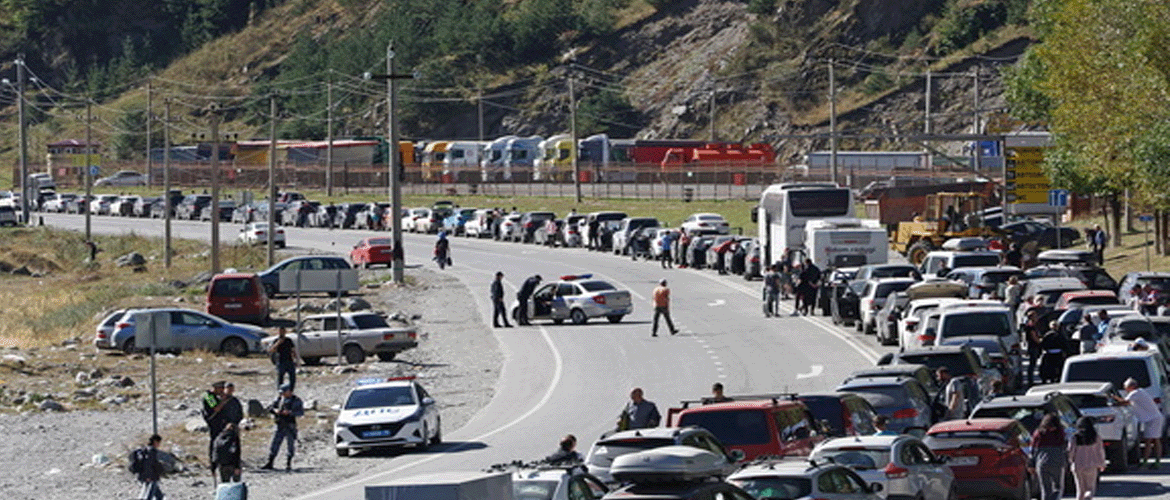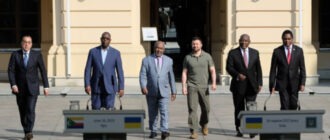Hundreds of thousands of people have left the Russian Federation after 24 February, 2022. However, when in spring and summer the whole families had been leaving the country, having defined the so-called relocation place in advance, and prepared accommodation, having had the labor contracts amended, and domestic issues settled, then, after the partial mobilization was announced on 21 September, between about 300,000 to 700,000 (according to various estimates) men of military age fled from Russia, leaving all behind.
While there are no major issues in forced emigration for very young people, who haven’t started their families yet, — the parents, who remained in Russia, would always care for them, universities and colleges provide for remote education, and the whole possibility of changing the environment, and, ultimately, the destiny, turns into an exciting adventure for many, the older men and their families are faced with problems of a very different kind.
Let’s imagine such a “runaway”. He’s somewhere between 30 and 55, at some point he either evaded the draft simply ignoring the draft board until the end of his military age, or graduated from a university with some training at the military department where the most important thing was the banter of comrade colonel, while Kalashnikov assembly and disassembly standard had been fulfilled though a petty bribe given to that very same colonel (or a major, depending on the level of a higher educational establishment), and received an officer rank, and a military occupational specialty; or he served one year military service, through good connections, somewhere on a cozy site like the Theater of the Soviet Army, or at a military school within his native city limits.
Now he’s an adult, settled down, bought an apartment with a mortgage, or the parents “have helped”, made an expensive repair, got married, has children, found a decent job or opened a small business, and was not actually prepared to any upheaval scenarios like “if tomorrow the war…”. Tomorrow, for a non-mobilized, looked exclusively in the format of choosing a place on the world map where it would be fun to spend a vacation, or changing his car to a newer modern brand, or mastering trendy recipes and trends in clothing. Some of them even supported Russia’s “Special Military Operation” against Ukraine, and were sympathetic to the Russian army and people’s militia of the self-proclaimed Donetsk and Lugansk People’s Republics, read the patriotic Telegram channels, watched videos recorded by Strelkov-Girkin, however, did not disdain videos by Arestovich. And now…This!
The fear and unwillingness to go to war is understood: criteria of mobilization only exist in the media, and not explicitly spelled out in any of the laws. Which categories of the drafted are to be sent to the front line, how and what time frame the mobilization will be effected in, and at last, what is a degree of this mobilization being a “partial” one?
That’s why hundreds of thousands of men aged 18-55 rushed to storm border posts of the neighboring countries. Leaving the country had to be quick and very expensive. Moreover, several Schengen countries – for instance, Finland and Estonia, closed their borders for the Russians, while the cars from Russia formed huge queues at the borders of the post-soviet states.
In general, the majority of “runaways” had to leave their families behind. In the first days the wives rejoiced at how skillfully their husbands had fled the war, but it was not long before they realized that taking care of kids, house, cars, business, and everyday needs fell on fragile women’s shoulders. Moreover, it became obvious, that it is pretty difficult for wives and kids to follow their fled husbands. Huge queues formed to the notary offices, and very few managed to obtain a permit to take the children abroad; the Russian consulates all over the world, where such permits could be issued, are faced with permit application queues for at least half a year to handle, and even a visit of a fled potential recruit to the consulate itself is a venture with dim consequences.
But even if all documents are in order, it is hard for women – left in their homeland at the households – to reunite with their husbands. Firstly, it is not clear, what the life abroad would bring, provided that due to the mass migration of the Ukrainians and Russians there are tangible housing shortages amid continually increasing housing prices. Secondly, husbands, who ran away from mobilization, are not happy about the intention of their wives to leave the Russian Federation without settling all necessary matters.
That’s why women are selling their valuables that couldn’t be taken abroad; trying to lease their family apartments for long term, managing their credits and closing/selling businesses, (if any).
Women, for mutual assistance and support, are organizing themselves into groups where they offer each other advice and provide all possible assistance. And they somehow cope with issues that have arisen and handle the recurrent challenges. Well, in Russia women have always been stronger and more entrepreneurial than men. So, what are their husbands busy with? They are gliding through foreign countries selecting a place for the “ new future home”, whatever that may turn out to be, – a hostel in Mongolia or a villa in Montenegro, drinking in bars and cursing the authorities, and lamenting their ruined lives. The Russian women just can’t afford that.







